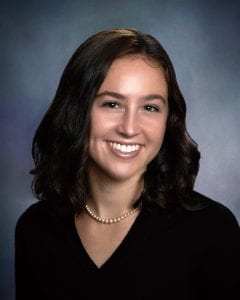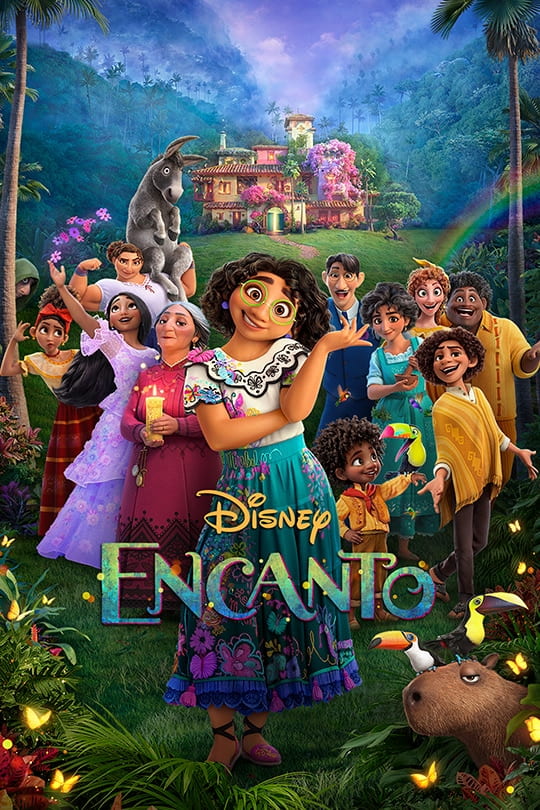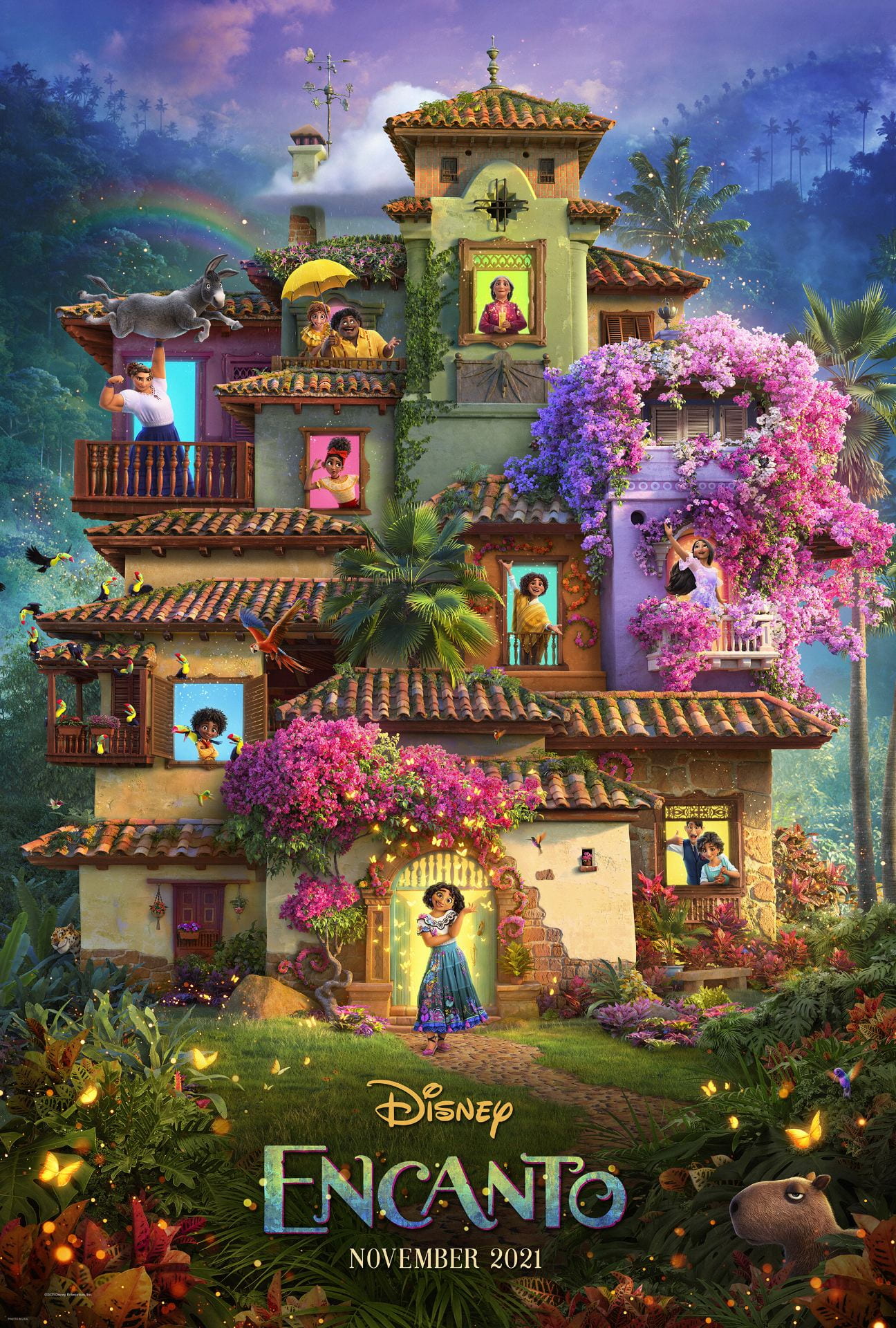
About the Author
Isabelle Goldstein is a first-year at Harvard, and she is interested in pursuing a concentration in History and Literature. She is also interested in Latin American history. She runs collegiate cross-country and track, and in her free time, she enjoys discovering new spots around Cambridge and Boston.
Encanto, Spanish and the Gift of Family
Barring global pandemics, my immediate family packs our bags every two or three years and heads to the south of England to visit our extended family. Because of Covid-19, we hadn’t made this trip in nearly four years. This past winter, my fully-boosted family decided that it was finally time to return.
As a result of the time away, this visit felt extra special. We celebrated Christmas together in typical English fashion, and the days quickly passed us by as we enjoyed our time in the green, rolling hills of South England. On New Year’s Eve, my family sat down together to find one last film to watch in 2021 before ringing in the new year together. After some amount of pushing and prodding, my mother convinced the rest of us to watch Disney’s newest animated film, Encanto. We were hesitant, believing ourselves too mature for animated films, but nevertheless, sat down, put our feet up, and dove into the world of the Family Madrigal.

Photo Credit: Disney
We followed along as Maribel sang about the special powers of each family member, her struggle to find her place, and the duty of the family to the community. We learned about the magical Gifts that the family had been bestowed with, and the responsibility that came with such powers. I couldn’t help but recognize some of the parallels between her family and my own. Of course, we do not live in a magical casita, nor do any of us have the power to grow plants at will, or see the future, or any other gift for that matter. However, our family is only slightly more conventional.
Half of my extended family lives in England, and the other half is spread out across the United States. I have two moms: one born in England and the other in Rhode Island. My childhood home was only slightly less raucous than the sentient casita; there was always lots of yelling up and down the stairs, a meal being magically whipped up in the kitchen, or clothes swapped incessantly between my sister and myself–not without controversy, of course. As you can imagine, my family is every bit as wild and energetic as the Family Madrigal. It’s true that sometimes so much energy can create conflicts. However, we always seem to find a way to repair whatever metaphorical wounds we’ve inflicted on our casita and each other and continue on together.
My family and I found ourselves singing along with the chorus by the end of each song, gladly following Maribel on her journey through the casita to find her place within the family Madrigal. I loved learning about each individual family member’s gift, both and how they utilized the gifts to help the community, as well as their struggles with the pressure such gifts induced. I began to wonder whether my own family had a gift, or at least something like it. In my family, I see Isabela’s beauty and growth, Luisa’s enduring strength and sometimes even Pepa’s mood swings. I see the pressure of our different obligations and responsibilities. But most of all I see that the unconventionality of our family is a gift in and of itself. I find strength as a result of my family’s makeup, and I can view the world through a unique lens that my family has granted me.

The casita from Encanto. Photo Credit: Disney
My family’s unconventionality is a gift: it has shaped my view of the world and allowed me to approach life with an open mind and an open heart. I know that rigid binaries are not the way to approach the transformational moment we are living in.
My family’s values have also shaped why I feel so strongly about speaking Spanish and improving my Spanish skills. I never understood why my classmates were in such a rush to complete their language studies. For me, my love of Spanish serves as an extension of the values my family instilled in me: communication, empathy and a love of the unconventional.
I’m not Latina, so I will never fully understand the particular joys and struggles that Hispanic communities experience. However, I do believe that the choice to continue with my Spanish education has been a gift, like those found in Encanto. Although I am not yet super at speaking and writing the language, I do view it as a kind of superpower. There is power in being able to communicate with someone in another language. Learning Spanish has taught me a great deal about empathy, and how to understand someone who I otherwise would not. It has taught me to say what I mean, even when the words are not all there. Most of all, learning Spanish has taught me to be gentle with myself and understanding of others when ideas get lost in translation.
The connections between my family, Encanto and the Spanish language swirled around my head as the movie came to an end. I couldn’t articulate my unrefined thoughts, but I do remember how lucky I felt to be able to start the new year with my family by my side. Although we aren’t quite as magical as the Family Madrigal, my family has given me all the gifts I need to succeed in my adventures here at Harvard and beyond.
More Student Views
Puerto Rico’s Act 60: More Than Economics, a Human Rights Issue
For my senior research analysis project, I chose to examine Puerto Rico’s Act 60 policy. To gain a personal perspective on its impact, I interviewed Nyia Chusan, a Puerto Rican graduate student at Virginia Commonwealth University, who shared her experiences of how gentrification has changed her island:
Beyond Presence: Building Kichwa Community at Harvard
I recently had the pleasure of reuniting with Américo Mendoza-Mori, current assistant professor at St Olaf’s College, at my current institution and alma mater, the University of Wisconsin-Madison. Professor Mendoza-Mori, who was invited to Madison by the university’s Latin American, Caribbean, and Iberian Studies Program, shared how Indigenous languages and knowledges can reshape the ways universities teach, research and engage with communities, both local and abroad.
Of Salamanders and Spirits
I probably could’ve chosen a better day to visit the CIIDIR-IPN for the first time. It was the last week of September and the city had come to a full stop. Citizens barricaded the streets with tarps and plastic chairs, and protest banners covered the walls of the Edificio de Gobierno del Estado de Oaxaca, all demanding fair wages for the state’s educators. It was my first (but certainly not my last) encounter with the fierce political activism that Oaxaca is known for.




